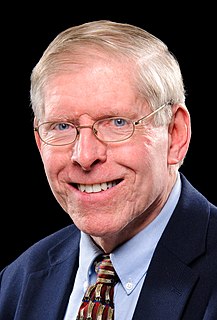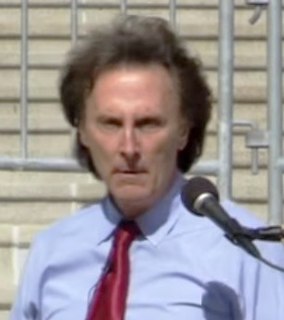A Quote by Abram Hoffer
I tell patients that tranquilizers alone never cure anyone. They merely reduce the intensity of the symptoms and make life slightly more endurable. They create a better behaved, chronic dependent person. Only with orthomolecular treatment can the majority of schizophrenic patients hope to become well and normally independent.
Related Quotes
In 1975, the respected British medical journal Lancet reported on a study which compared the effect on cancer patients of (1) a single chemotherapy, (2) multiple chemotherapy, and (3) no treatment at all. No treatment 'proved a significantly better policy for patients' survival and for quality of remaining life.'
I am a spiritual person. I'm a Catholic. I treat my patients, the dead patients, as live patients. I believe there is life after death. And I talk to my patients. I talk to them, not loudly but quietly in my heart when I look at them. Before I do an autopsy, I must have a visual contact with the face.
Schizophrenia --its nature, etiology, and the kind of therapy to use for it--remains one of the most puzzling of the mental illnesses. The theory of schizophrenia presented here is based on communications analysis, and specifically on the Theory of Logical Types. From this theory and from observations of schizophrenic patients is derived a description, and the necessary conditions for, a situation called the "double bind"--a situation in which no matter what a person does, he "can't win." It is hypothesized that a person caught in the double bind may develop schizophrenic symptoms
Problems associated with the menstrual cycle are now commonplace. The majority of teenagers whom I have seen suffer problems such as PMS, severe cramping, and irregular or heavy cycles. Severe hypothyroidism may cause the menses to stop. Dr. Barnes noted his patients with menstrual problems usually suffered many other telltale symptoms of hypothyroidism. Mine do as well. A large majority of menstrual problems resolve after treatment with dessicated thyroid.
Money spent on vegetative patients is money not spent on preventive care, such as flu shots and mammograms. Each night in an ICU bed for such patients is a night that another patient with a genuine prognosis for recovery is denied such high-end care. Every dollar exhausted on patients who will never wake up again is a dollar not devoted to finding a cure for cancer.
I don't think the people today who start hearing voices, stop eating and sleeping, and run amuck are likely to get good treatment. Having more knowledge, better diagnostic capabilities, better medications with fewer side effects, can't make up for the fact that most patients are being treated by doctors, therapists, and hospitals, who are operating under constraints and incentives that reward non-treatment, non-hospitalization, non-therapy, non-follow-up, non-care. Lost to follow-up is the best outcome a health insurer can hope for.
We went through the records and we found over five hundred of his patients who were alive and well five years after their treatment, with no cancer. And Dr. Burton didn't selectively give us these. These were "take what you want. Here are the patients I treated." So there was statistical improvement - more so than any cancer institution in the United States could show.







































